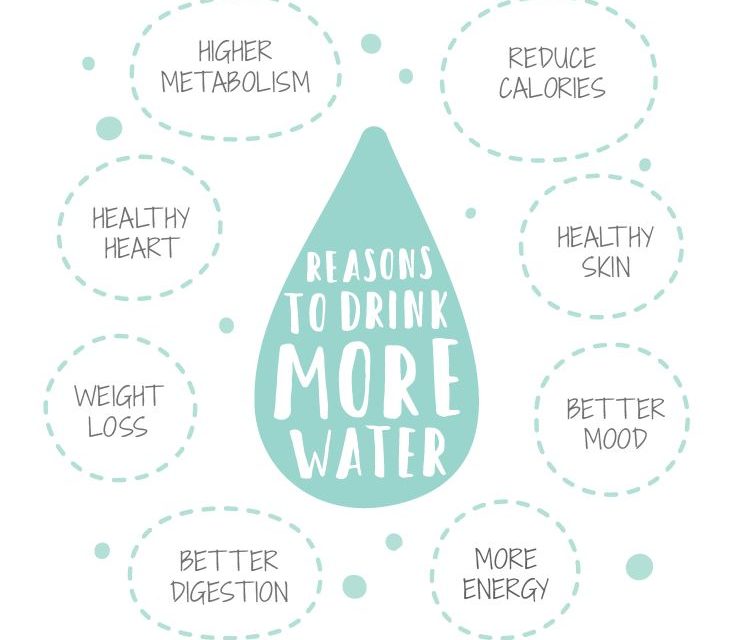BY JILL CULORA
You don’t have to look hard to find scientific research illustrating the important role water plays in a healthy diet—regardless of whether that water comes from the tap or is filtered or bottled. In fact, federal guidance, in the form of the current Dietary Guidelines for Americans (DGAs), notes that calorie-free beverages—especially water—should be the primary beverages consumed. The DGAs encourage a shift to healthier food and beverage choices, which “include choosing beverages with no added sugars, such as water, in place of sugar-sweetened beverages.”
And in today’s on-the-go society, people consume the majority of their liquids from packaged beverages. That’s why bottled water is uniquely positioned to help improve public health. Suitable for consumption at any time of the day, able to be served ice cold and room temperature, and conveniently packaged in 100-percent recyclable materials, bottled water provides consumers who are aiming for a healthier lifestyle the best option for healthy hydration.
But have you ever stopped to think about how it is that water, including bottled water, can help you keep your body functioning properly? The list that follows provides just a few examples of the many ways water consumption contributes to good health.
Obesity. Drinking water instead of caloric beverages can help reduce your total daily caloric intake. In a study of overweight and obese women participating in a weight-loss program, when water replaced other, more sugary beverages, it’s shown to facilitate weight loss and improve cardiometabolic outcomes (pubmed.ncbi.nlm.nih.gov/26537940).
Diabetes. In the United States alone, there are more than 34 million patients with diabetes and 88 million with pre-diabetes. How is diabetes related to water intake and hydration? Recent studies indicate that dehydration and low water intake lead to higher levels of antidiuretic hormone. A higher level of this hormone is associated with development of diabetes, heart disease, and death, says Stavros A. Kavouras, PhD, FACSM, FECSS, an assistant dean of graduate education and professor of nutrition at Arizona State University and director of its Hydration Science Laboratory (bit.ly/Kavouras_BWR).
Mood. Drinking enough water can also positively impact your mood and cognitive performance. Among women, those with higher levels of water intake reported significantly lower levels of tension, depression, confusion, and something called total mood disturbance, an aggregate measure of numerous aspects of overall mood (pubmed. ncbi.nlm.nih.gov/25963107). And men, when even just mildly dehydrated (1-2 percent weight loss), research shows that not only their mood but also their cognitive performance is impaired. (pubmed.ncbi.nlm.nih.gov/21736786).
Digestive Irregularity. Properly hydrating the colon will promote regular peristalsis (i.e., the natural muscle contractions that move food through the intestines) and help ease elimination. In the article “You May Be Dehydrated Even If You Drink Lots of Water: Dehydration Risks & Solutions,” gastroenterologist Leonard Smith, MD, medical advisor for the University of Miami’s Department of Integrative Medicine, recommends that you “try to drink at least half your body weight in ounces of water each day” (bit.ly/DrinkHalfBodyWeightOunces).
Heart Concerns. Keeping the body hydrated helps the heart more easily pump blood through the blood vessels to the muscles. And, according to the American Heart Association, it helps the muscles work efficiently. “If you’re well hydrated, your heart doesn’t have to work as hard,” says John Batson, MD, FACSM, a sports medicine physician with Lowcountry Spine & Sport in Hilton Head Island, South Carolina, and American Heart Association volunteer. (bit.ly/StayHydratedStayHealthy).
Fatigue. On the Harvard Health Publishing website, experts from the university tout water’s essential role in conveying nutrients to all parts of the body: “If your energy isn’t what you’d like it to be . . . something as simple as making sure you are adequately hydrated can make a big difference in how you feel. (www.health.harvard. edu/healthbeat/fight-fatigue-with-fluids). Studies assessing the effects of mild dehydration on men (pubmed.ncbi.nlm.nih. gov/21736786) and women (pubmed. ncbi.nlm.nih.gov/22716932) have both concluded that fatigue and tension/ anxiety increases due to dehydration.
High Blood Pressure. Decreases in blood volume can occur through blood loss or via loss of body water from sweating, which can lead to increased heart rate, a drop in blood pressure, or fainting. Drinking water will reduce heart rate and increase blood pressure in normal healthy people, says Barry Popkin, PhD (www.ncbi.nlm.nih.gov/ pmc/articles/PMC2908954). In addition to health issues listed above, we also know that drinking adequate amounts of water daily can help with the follow conditions:
Cognitive Function. Kids that drink more water in school perform better on cognitive tasks, says Kavouras (bit.ly/ Kavouras_BWR).
Kidneys. Ten percent of the U.S. population is affected by kidney stones—and that figure is growing. Researchers, such as Jessica Sontrop, PhD, from Western University in Canada, have found increased water consumption can alleviate the incidence of kidney stones because water helps decrease the concentrations of substances involved in stone formation. In addition, Sontrop has found the prevalence of stage III chronic kidney disease was highest among those with the lowest water intake. Her study concluded there is “evidence suggesting a potentially protective effect of higher total water intake, particularly plain water, on the kidney” (pubmed.ncbi.nlm. nih.gov/23594828).
Helping to Create a Healthier Population
Water’s functions in the body are well known for helping to dissolve vitamins and minerals, making them available for absorption, transporting nutrients and oxygen to the cells, lubricating the joints, moistening tissues, forming saliva and mucus, cushioning organs, regulating body temperature, and eliminating waste from the body. The health benefits of being adequately hydrated are indisputable, and, as such, health experts recommend that we should drink more water more often. As bottled water professionals, it’s important that we continue to actively and aggressively share the facts about healthy hydration with our customers, friends, legislators, and the media. Through our communications efforts, we can educate people and inspire them to establish healthy drinking habits and thereby help create a healthier population.



Recent Comments